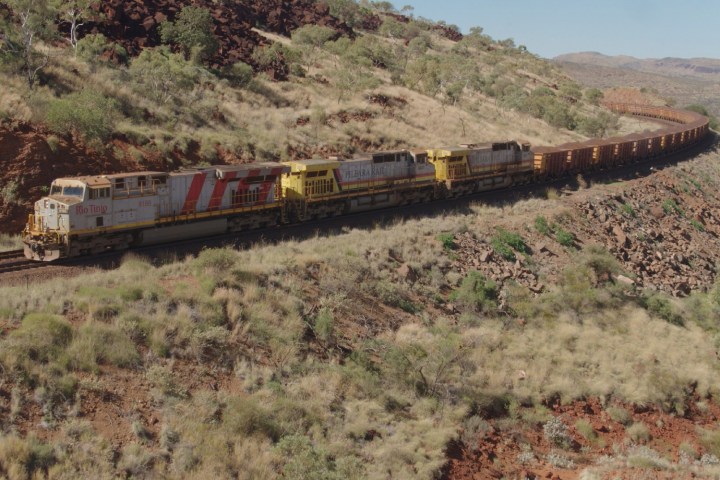
When you hear that the world’s largest robot has gone live in Australia, your mind might conjure up something like an anime-style giant mech. In fact, the announcement comes from iron ore mining company Rio Tinto, which recently launched its fully automated rail network: A series of mine-to-port trains able to run completely free from human intervention. These AutoHaul trains travel an approximately 800-kilometer return journey, taking 40 hours to complete, including loading and dumping their cargo. The rail network is set up in the Pilbara region of Western Australia.
“This is a world first,” a spokesperson for Rio Tinto told Digital Trends. “It is the first fully autonomous, long-distance, heavy-haul rail network in the world. The successful deployment is the culmination of a $940 million project and has the potential to transform the productivity and flexibility of the 1,700-kilometer network between our 16 iron ore mines and two ports.”
But why turn this job over to machines to run? According to the company representative we contacted, there are several reasons. (And, no, immediately getting rid of employees isn’t one of them. Rio Tinto says that no layoffs are expected in 2019 as a result of the new train line.)
“We are already seeing cycle time improvements through consistent driving strategies and productivity benefits by removing the need for driver changeovers,” the spokesperson continued. “There are also benefits to safety. It greatly reduces the 1.5 million kilometers of light vehicle travel by drivers who have had to travel to meet trains for changeovers. Other benefits include reduced risk at level crossings and automated responses by the train to speed restrictions and incidents.”
Trains are, of course, just one transportation technology currently experiencing a shakeup thanks to breakthroughs in fields like robotics and artificial intelligence. Self-driving cars are probably the best known of these, but there is also massive development in everything from autonomous boats to pilotless planes to, yes, flying cars on the horizon. One thing is for sure: The world of transportation in the 2020s is going to look very, very different from any previous point in history. We are cautiously excited to see what’s next.


